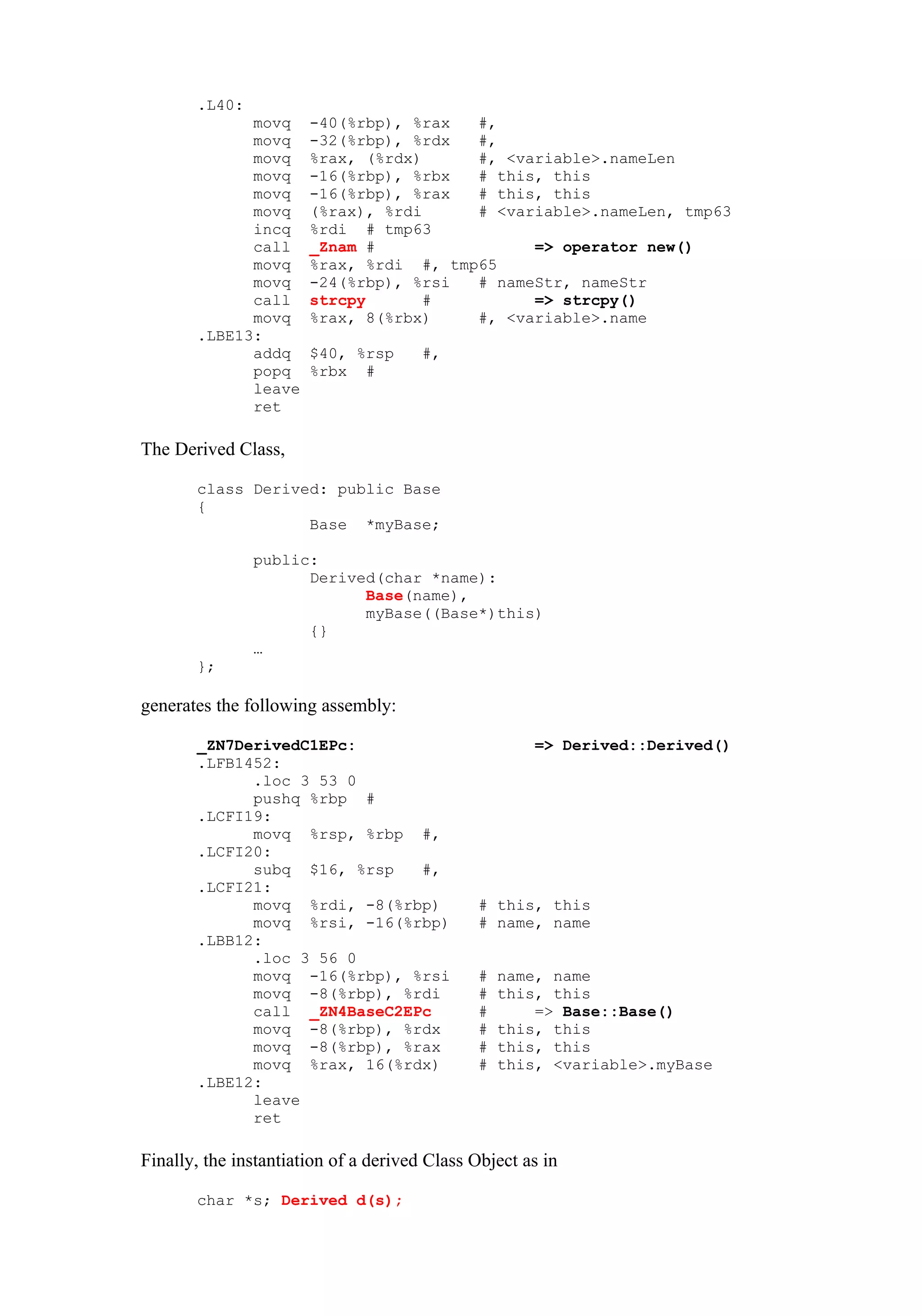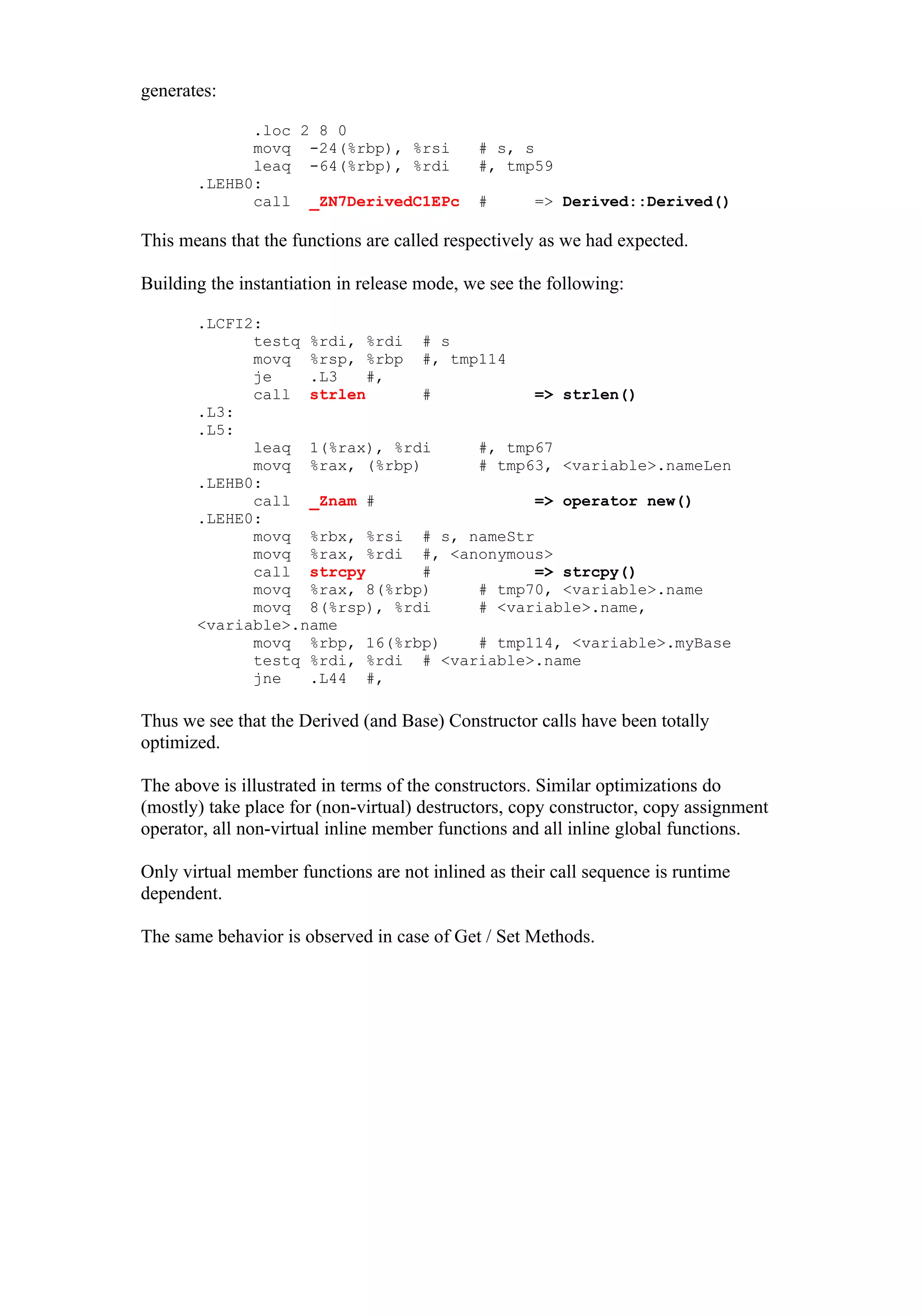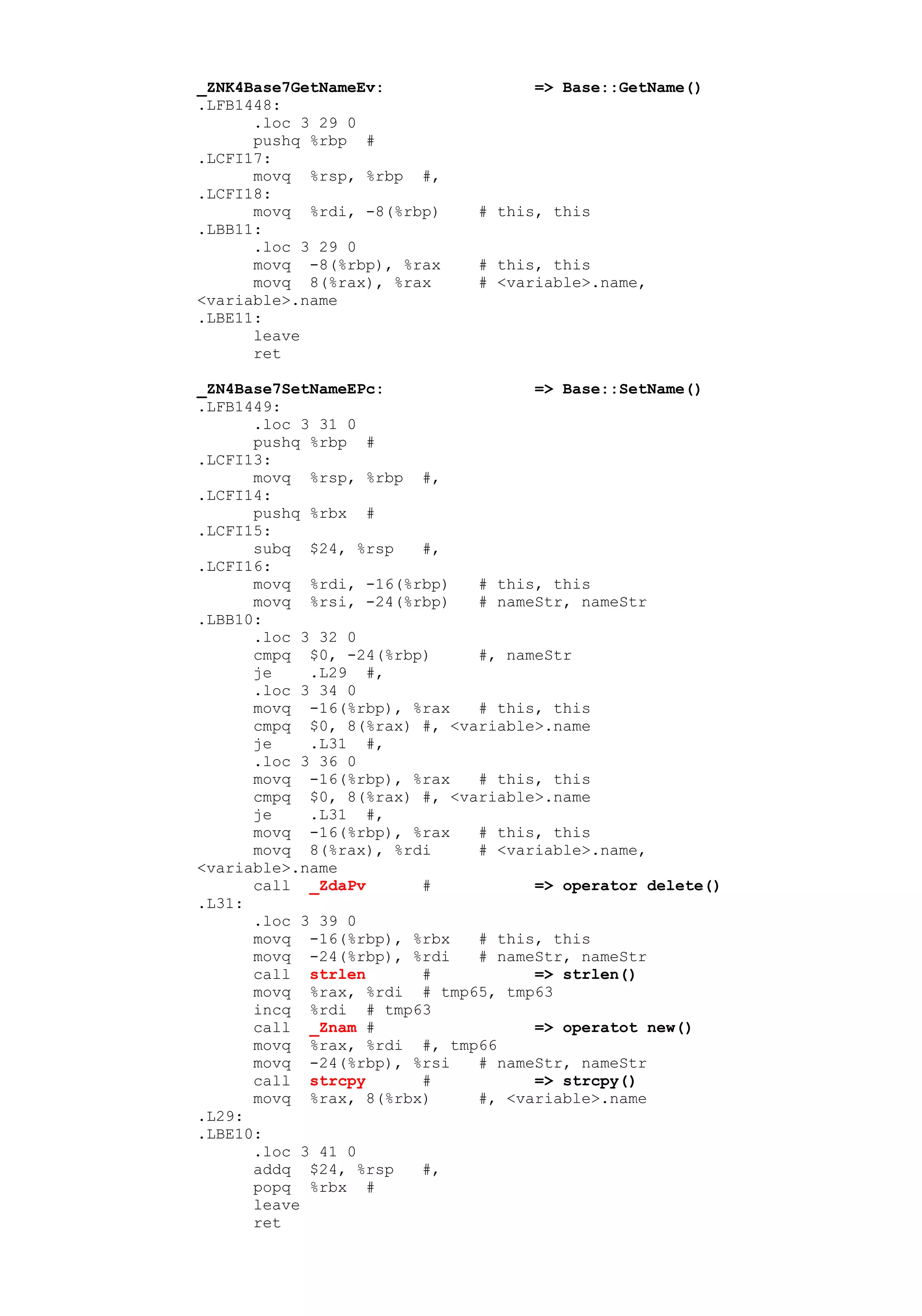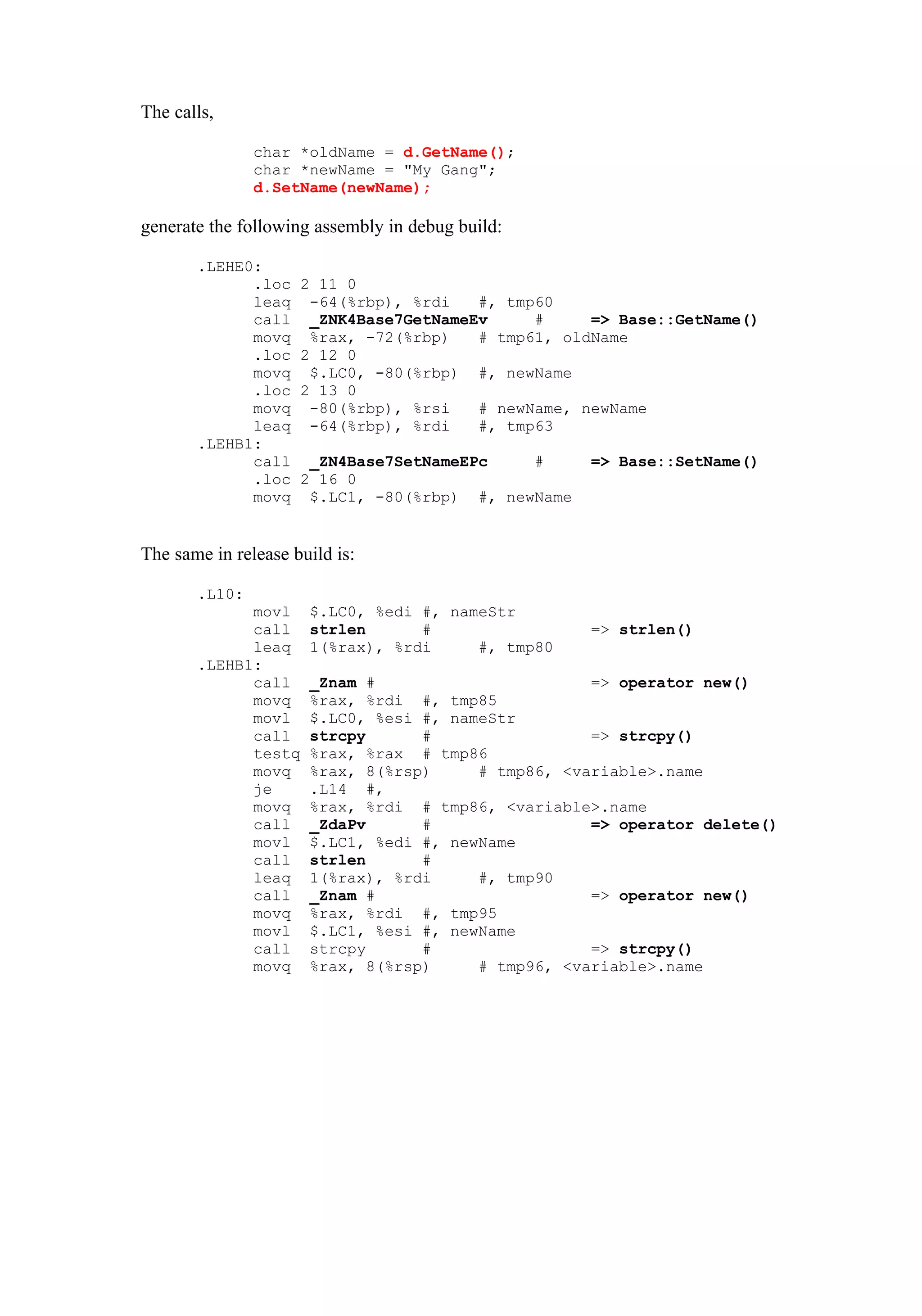The document discusses function call optimization in C++. It provides examples of constructor, base class constructor, and get/set method calls in both debug and release builds. In release builds, the compiler fully optimizes constructor calls and inlines non-virtual functions like get/set methods to improve performance. Only virtual functions cannot be optimized as their call sequence depends on runtime type.
![Function Call Optimization
This note describes the observations on the following Function Calls:
1. Constructor call
2. Constructor call of Base Class
3. Get / Set Methods.
To Test for the above a sample Base Class has been developed.
class Base
{
public:
size_t nameLen;
char *name;
protected:
Base(char *nameStr):
nameLen((nameStr)? strlen(nameStr): 0),
name(strcpy(new char[nameLen+1], nameStr))
{}
…
};
This generates the following assembly in debug build using g++. The function calls
have been marked in red.
_ZN4BaseC2EPc: => Base::Base()
.LFB1443:
.loc 3 17 0
pushq %rbp #
.LCFI22:
movq %rsp, %rbp #,
.LCFI23:
pushq %rbx #
.LCFI24:
subq $40, %rsp #,
.LCFI25:
movq %rdi, -16(%rbp) # this, this
movq %rsi, -24(%rbp) # nameStr, nameStr
.LBB13:
.loc 3 20 0
movq -16(%rbp), %rax # this,
movq %rax, -32(%rbp) #,
cmpq $0, -24(%rbp) #, nameStr
je .L39 #,
movq -24(%rbp), %rdi # nameStr, nameStr
call strlen # => strlen()
movq %rax, -40(%rbp) # tmp61,
jmp .L40 #
.L39:
movq $0, -40(%rbp) #,](https://image.slidesharecdn.com/functioncalloptimization-12660003268038-phpapp01/75/Function-Call-Optimization-1-2048.jpg)


![class Base
{
…
char *GetName() const { return name; }
void SetName(char *nameStr)
{
if (nameStr)
{
if (name)
{
delete [] name;
}
name =
strcpy(new char[strlen(nameStr)+1], nameStr);
}
}
…
};
The assemblies for the Get / Set Methods are shown below:](https://image.slidesharecdn.com/functioncalloptimization-12660003268038-phpapp01/75/Function-Call-Optimization-4-2048.jpg)

